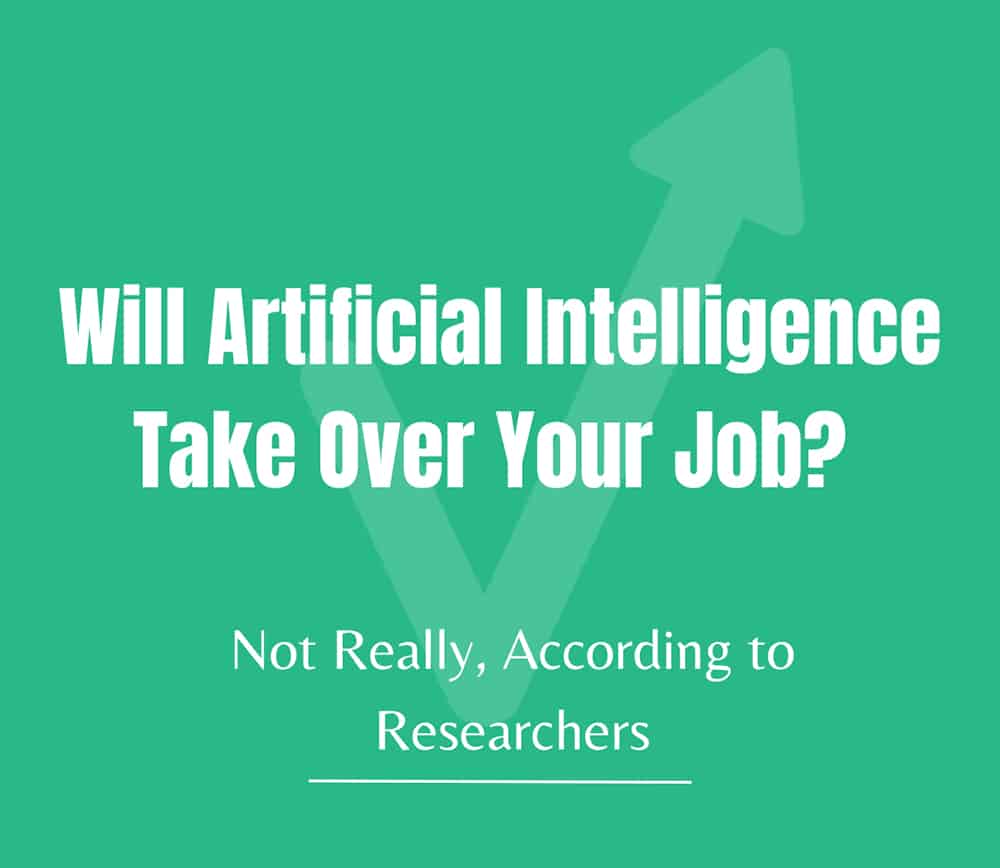
Will Artificial Intelligence Take Over Your Job? Not Really, According to Researchers
For decades, we’ve worried about an artificial intelligence take-over of our jobs. Since the 1950s, it’s been a thing.
Lately, academics have kept speculating that smart machines could make human work history. Read on for a measured perspective from people in the know.
Understanding AI’s Role in the Workplace
It’s tempting to trip out about Artificial Intelligence eliminating entire careers and leaving us humans kicking rocks. But that sci-fi scenario isn’t likely yet. Here’s the real deal:
AI kicks butt at repetitive tasks. It rocks data crunching, finding patterns, and predicting things based on past data. So it can own the dull, routine stuff we humans hate doing. That shifts certain tasks within jobs rather than axing jobs completely.
However, AI still lacks human capacities like reasoning, creativity, wit, empathy, and ethics. Most jobs blend technical and “human” skills. So, for now, AI will partner with us workers more than replace us outright.
For instance, a financial advisor could use AI to analyze investing trends and then add their reasoning and communication skills to explain strategic options to clients. A chef might employ an AI sous chef to chop, stir, and track cooking times but add their own creativity and taste to innovate flavor combinations robots can’t conceive.
Key Takeaway: Instead of humanity’s wholescale unemployment, moderate transformation of work seems ahead. AI takes rote tasks off our plates so we can focus on bringing empathy, judgment and imagination to our careers.
What the Researchers Say
The last few years saw panicky headlines about AI ending work as we know it. But rational experts say pump the brakes. Studies show less radical impacts coming down the pike:
- MIT found that only 23% of visual perception tasks are currently cost-effective for companies to automate. The full takeover could take decades.
- In a PwC CEO survey, only 20% planned to downsize human workforces due to AI integration this year. These are not exactly doomsday numbers.
Looking back historically, new tech has always killed some jobs but has also created new ones.
The same will likely happen with AI. For example, gas lighting destroyed candlemaking but opened up new gigs for gas lamplighters and lighter repair folks.
Key Takeaway: Though some jobs will be lost, experts predict a moderate overall impact. And new AI-powered roles could arise, too.
Sectors Most Likely To Be Affected
Sure, some careers are more vulnerable to automation – like those relying heavily on predictable, repetitive work:
- Manufacturing, warehousing, delivery driving – robots can rock these physical jobs. Their judgment is limited but improving. Less demand for human operators and drivers seems likely.
- Basic customer service roles focused on conveying standard info or looking up data can be partly automated using chatbots and such. But nuanced relationships still need human intuition.
On the flip side, many jobs remain tricky to automate because they draw heavily on social and creative human capacities:
- Healthcare practitioners diagnose conditions by discussing symptoms and doing physical exams with patients. Counselors who build trust and truly understand clients.
- Teachers who craft engaging lesson plans, motivate students and nurture young minds and hearts in a way no robot can. Coaches who develop both athletic skill and character.
- Innovators who find creative solutions to vaguely defined problems and make strategic judgment calls when data hits dead ends. Designers who move people through imagination and artistry.
- Hospitality pros who read social dynamics, customize experiences, surprise patrons, and build loyalty through real relationships.
Key Takeaway: Jobs requiring human emotional intelligence, ethics, creativity, and complex communication seem safer for now. But most roles will simply transform rather than disappear entirely.
The Importance of Adaptability and Lifelong Learning
Though AI won’t suddenly replace us workers overnight, jobs will gradually change. So, human adaptability will be clutch. Focus on developing versatile human skills to complement technical automation:
- Creative problem-solving helps you reframe challenges and devise solutions computers would never conceive. This builds strategic value.
- Clear communication and collaboration abilities allow you to coordinate workflows smoothly with AI systems and team members alike.
- Persuasion and emotional intelligence help convince stakeholders by understanding unspoken needs and showing you truly care. This drives buy-in.
- Ethical reasoning ensures you consider potential harms from AI so you can prevent issues and operate safely. This fosters trust.
Read More: 12 Great Tips to Find the Jobs You Love
How Businesses and Governments Can Help
Organizations and public policy also shape the landscape. Some tips for key players:
- Employers should provide ample training to help employees learn the human abilities and technical skills needed to thrive in the future. Schools need to make lifelong learning a priority, too.
- For workers displaced by automation, offer career guidance, financial assistance, and transition programs to make shifts smoother. Also, give them a voice in AI implementation rather than handing down decisions.
- Lawmakers can provide tax credits to motivate companies to retrain existing workers for newly created roles. Increase funding for mid-career education programs, too.
- Schools should teach both technical subjects like computer science and human studies like psychology, ethics, and communication. This builds hard and soft skills.
Key Takeaway: Businesses and government should support displaced workers while promoting lifelong learning and training policies to develop complementary AI-era skills.
Final Thoughts
Will AI keep advancing? For sure. But robots commandeering human work wholesale seems far-fetched for the foreseeable future. What lies ahead contains uncertainty but likely more measured adaptation rather than sudden human obsolescence.
What are your thoughts on AI and the future of jobs? Share your view in the comments! And don’t forget to subscribe for more insights into the intersection of work and technology.






Sorry, the comment form is closed at this time.